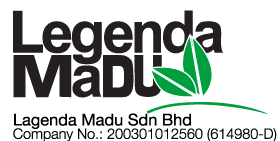Recycling Organic Waste
- Published in
- Category: General Articles
- Hits: 7182
- Print , Email
The Malaysian Experience
In reviewing the development of waste management policies in the US and UK, it is quite disheartening to see that government initiatives backed by legislature is no guarantee of success. It appears that only when push comes to shove does real action and progress take place. In Malaysia, our backs are already to the wall.
In September 2004, Malaysians, particularly in Selangor state and Federal Territory, faced a very real threat of water shortage from the potential shut down of water treatment plants due to contamination of our rivers. It appeared that at best the relevant authorities had only a on-a-wing-and-a-prayer approach. First, they admonished the identified culprits – factories and heavy industries – and spoke of heavy fines and/or jail terms. Then, they optimistically assessed that heavy rain into catchment areas would avoid the need for such drastic action. Not to be critical but this doesn’t sound like much of a waste management plan, does it?
In a January 2003 report by The Star, Housing and Local Government Minister Datuk Seri Ong Ka Ting was quoted as saying that by year 2005, our landfills would be 80 percent filled up. In a November 2003 report by the same publication, Prime Minister Datuk Seri Abdullah Ahmad Badawi exhorted government departments in Putrajaya to take the lead in recycling efforts, saying, “If we fail here, we may as well fail everywhere else.” Sobering words.
Despite such dire warnings, alarm bells have not appeared to have gone off in the public consciousness. Consider our progress report to date. Since year 2000, a pilot programme named Local Agenda 21 has been in place. Its objective? “To forge partnerships between local authorities and the communities they serve to work together to plan and care for their surroundings towards sustainable development.” But there’s no mention of what the recycling component of this sustainable development would be and what the target percentage is and by when. As late as early 2003, Datuk Ong Ka Ting was quoted as saying that “We need to remind the public to always remember the three Rs – Reduce, Reuse and Recycle.” However, he also revealed that the master plan on solid waste management – which includes recycling campaigns, landfills and installation of incinerators – was not completed yet.
According to Associate Professor Goh Ban Lee of the Planning & Development Management department within Universiti Sains Malaysia, it costs between RM90 to RM150 per tonne to collect, transport and dispose of this waste in landfills. (The Sun, September 2004) We generate approximately 17,000 to 18,000 tonnes of waste daily; that’s about RM2 million in costs per day. An alternative would be to recycle more; not just to reduce the strain on landfills but also to save costs. As quoted by the Prime Minister: for every 1.1 million tonnes recycled, we would save RM88 million.
Between 2001 to 2003, RM40 million has been spent to raise public awareness and promote recycling. Our achievement to date? Three percent according to year 2003 figures. This pales in comparison to India with a 15 percent recycling rate. If the fear of running out of landfills doesn’t scare us into action, I don’t know what will.
As we’ve learnt from the history of developments in the First World, there’s a price to be paid for not prioritising our waste management practices. We are now aware of the dangers. What we lack is a cohesive strategy to get our act together. And a sense of urgency to pull it off.


